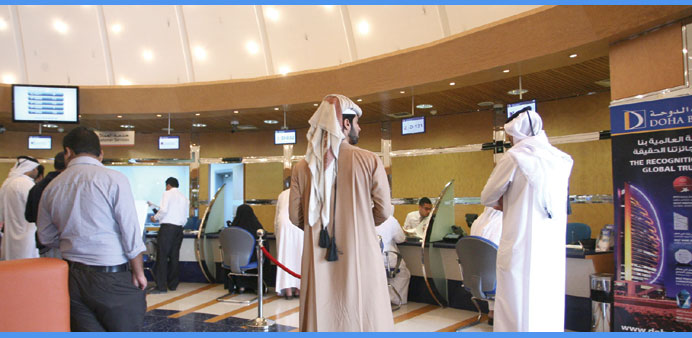In March, Doha Bank said it would issue Tier 1 capital enhancing bonds with a perpetual tenor and an option for the bank to redeem them after six years. PICTURE: Nasar TK
Reuters/Dubai
Doha Bank, Qatar’s fifth-largest bank by assets, said yesterday it raised QR2bn ($549mn) through a capital-boosting bond, the latest Gulf lender to tap debt markets to replenish reserves after a period of strong growth.
The statement gave no further details of the bond except to say it was issued on June 30 and would enhance its Tier 1, or core, capital.
In March, the bank said that it would issue Tier 1-enhancing bonds with a perpetual tenor—meaning no fixed redemption date—and an option for the bank to redeem them after six years.
The announcement follows Qatar Islamic Bank, the Gulf state’s largest Shariah-compliant lender by assets, which said earlier this week it had raised QR2bn through a Tier 1 perpetual sukuk offering.
Qatari banks have been able to build their loan books at a fast pace in recent years as the Gulf state spends billions of dollars developing infrastructure and preparing to host the 2022 soccer World Cup.
Loan growth in the banking sector has slipped from advances of more than 10% seen earlier in the decade but still increased 8.2% in April, according to the latest central bank data.
Unlike European peers that have been dogged by capital concerns due to the eurozone’s struggles, Gulf banks have increasingly turned to capital-enhancing bonds for more positive reasons, seeking to build on existing growth and diversify their sources of capital.
New Basel III banking standards, due to come into full force in 2019, will also oblige banks to set aside more capital.
The conservative stance of Gulf regulators already means they have to build up bigger buffers than their Western peers.
Doha Bank total capital adequacy ratio, a combination of Tier 1 and Tier 2 capital—regarded as one of the key indicators of a bank’s health—stood at 14.67% at the end of first quarter, against a 12.5% minimum prescribed by the Qatar Central Bank.

